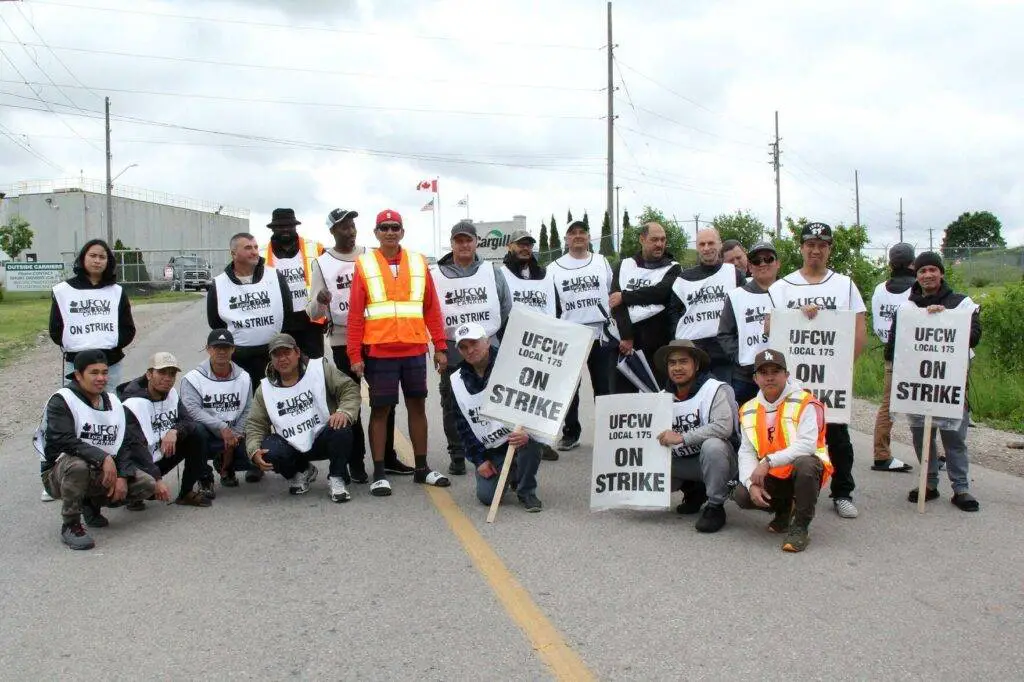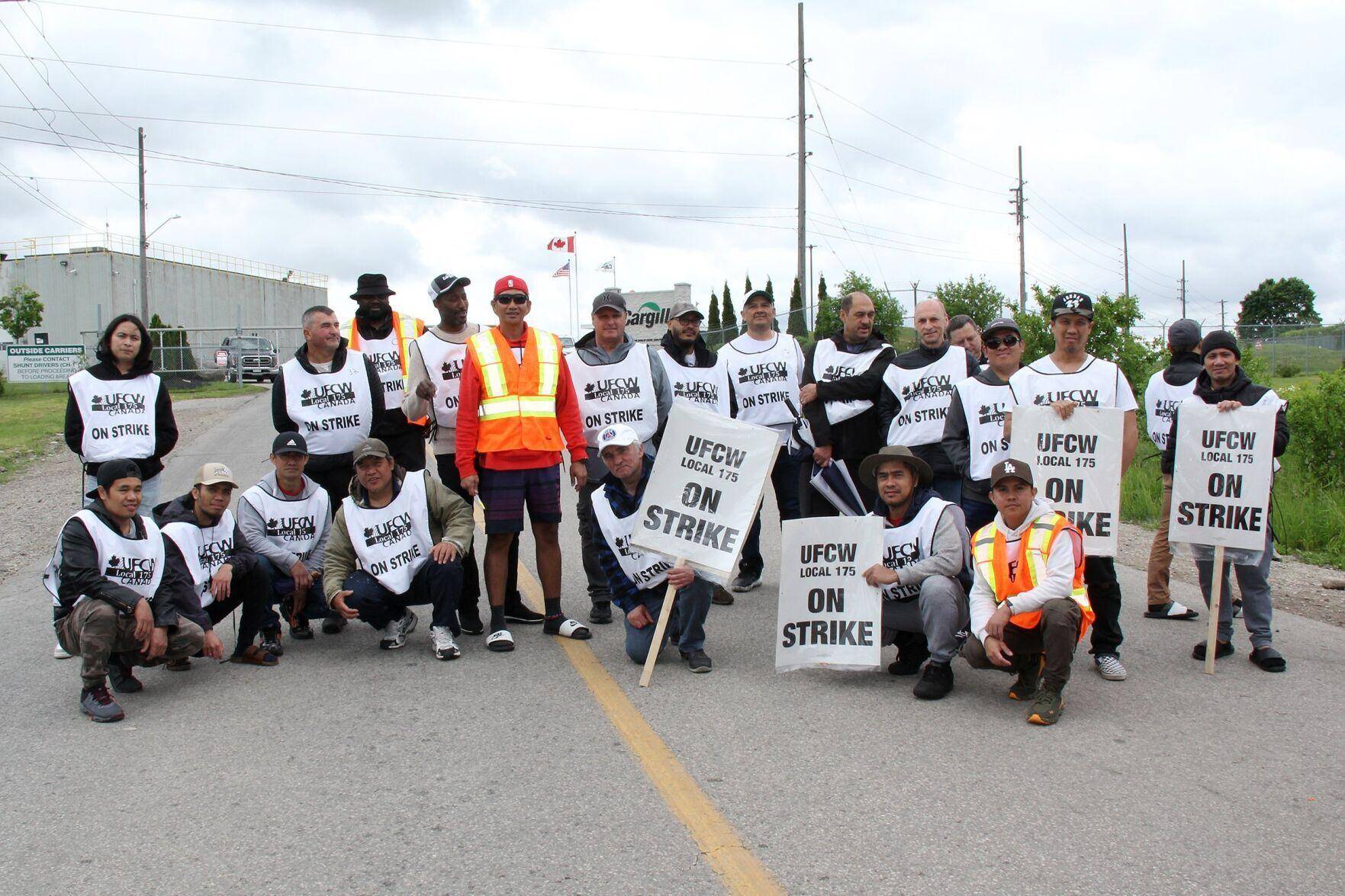In recent times, labor strikes have surged across various industries, reflecting growing discontent among workers over conditions, wages, and benefits. One such notable instance is the strike by Cargill workers, which has garnered significant attention. This article delves into the reasons behind the strike, examining the workers’ grievances, the company’s response, and the broader implications for the food industry.
Background on Cargill and Its Workforce
Cargill, a global leader in food production and agricultural services, employs thousands of workers across its facilities. These employees play crucial roles in ensuring the smooth operation of food supply chains, from processing raw materials to distributing finished products. Despite the company’s prominent position in the industry, its labor practices have come under scrutiny.
Key Reasons Behind the Strike
1. Wage Disputes
One of the primary catalysts for the strike is the dispute over wages. Many Cargill workers feel that their compensation does not reflect the demanding nature of their work or the rising cost of living. They argue that their wages have stagnated, even as the company reports substantial profits. The workers are demanding fair pay increases to match their efforts and contributions to the company’s success.
2. Working Conditions
Working conditions at Cargill facilities have also been a significant point of contention. Employees have voiced concerns over long hours, inadequate breaks, and unsafe working environments. Reports of injuries and health issues have intensified calls for better safety protocols and improved working conditions. The strike is a means for workers to push for tangible changes that prioritize their well-being.
3. Benefits and Job Security
Beyond wages and working conditions, Cargill workers are also fighting for better benefits and job security. Many employees feel that their current benefits packages, including healthcare and retirement plans, are insufficient. Additionally, job security has become a pressing issue, with workers seeking assurances that their positions will not be outsourced or eliminated as the company looks to cut costs.
The Company’s Response
Cargill has acknowledged the strike and the concerns raised by its workers. In public statements, the company has expressed a willingness to engage in negotiations and find a resolution. However, Cargill maintains that it has offered competitive wages and benefits, suggesting that the demands may be unreasonable given the economic landscape. The company also emphasizes its commitment to worker safety, citing ongoing investments in safety measures and training programs.
Broader Implications for the Food Industry
The Cargill workers’ strike is not an isolated incident but part of a larger trend within the food industry. Across the sector, workers are increasingly vocal about their rights and conditions. The strike highlights several key issues that resonate beyond Cargill, impacting the food industry as a whole.
1. Labor Rights Movement
The strike underscores the growing labor rights movement within the food industry. Workers are organizing to demand better wages, safer working conditions, and more robust benefits. This movement is gaining momentum, influencing other food production companies to re-evaluate their labor practices and engage in more meaningful dialogues with their employees.
2. Supply Chain Disruptions
Strikes within the food industry can have far-reaching effects on supply chains. Cargill’s operations are integral to various food supply networks, and any disruption can lead to delays and shortages. This strike serves as a reminder of the critical role that workers play in maintaining the stability of food supply chains and the potential consequences when their grievances are not addressed.
3. Public Perception and Consumer Impact
The strike also affects public perception of Cargill and similar companies. As consumers become more aware of labor issues, there is increasing pressure on companies to uphold ethical labor practices. Negative publicity from strikes can harm a company’s reputation and influence consumer behavior, potentially leading to a preference for products from companies with better labor records.
Path Forward
Resolving the strike requires a concerted effort from both Cargill and its workers. Successful negotiation hinges on addressing the core issues raised by employees while ensuring the company’s economic viability. Several steps can be taken to move towards a resolution:
- Open Dialogue and Negotiation
Constructive dialogue between Cargill and its workers is essential. Both parties need to come to the table with a willingness to compromise and find mutually beneficial solutions. Transparent communication and a genuine commitment to addressing concerns can pave the way for a resolution.
- Fair Wage Adjustments
Reevaluating wage structures to ensure fair compensation is critical. Cargill must consider the financial realities faced by its workers and offer pay increases that reflect their contributions and the cost of living. Fair wages are not only a matter of equity but also a means to boost morale and productivity.
- Improved Working Conditions
Addressing safety concerns and improving working conditions is paramount. Cargill should invest in enhanced safety measures, provide adequate breaks, and create a healthier work environment. Ensuring the physical and mental well-being of workers is essential for their long-term satisfaction and productivity.
- Enhanced Benefits and Job Security
Revising benefits packages to provide comprehensive healthcare, retirement plans, and other perks can go a long way in meeting workers’ demands. Additionally, offering job security assurances can help alleviate fears of layoffs and outsourcing, fostering a more stable and committed workforce.
Conclusion
The strike by Cargill workers sheds light on significant labor issues within the food industry. By understanding the reasons behind the strike and addressing the core concerns of workers, companies like Cargill can create a more equitable and sustainable working environment. The resolution of this strike has the potential to set a precedent for labor relations in the industry, emphasizing the importance of fair wages, safe working conditions, and robust benefits for all employees.
More: Cargill Targeted In Pollution Claim



